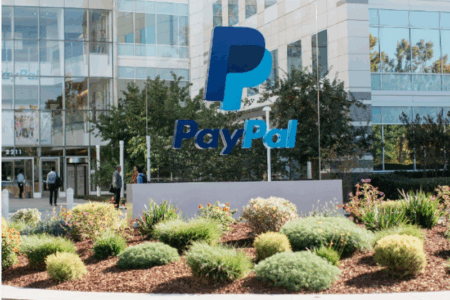Property developers are generally thought to be resilient as they own large amounts of physical assets.
This portfolio of physical real estate is expected to hold their value through good times and bad.
However, not all aspects of the business are immune.
The COVID-19 pandemic is showing how a crisis can adversely impact large property conglomerates.
Two of the largest property giants listed here are CapitaLand Limited (SGX: C31) and City Developments Limited (SGX: C09), or CDL.
These two companies are billion-dollar businesses with diverse property portfolios that span residential, retail, commercial and hospitality sub-segments.
Due to lockdowns and border closures, both CapitaLand and CDL saw their hotel properties suffer unprecedented financial stress as occupancy rates plummeted.
Downward revaluation on properties and impairment losses have also led to a significant plunge in net profits for the year.
CapitaLand saw its net profit plunge 89% year on year to S$96.6 million, while CDL’s net profit fell by an even sharper 99.1% year on year to just S$3.1 million.
Given that each company is facing significant headwinds currently, which of these blue-chip companies represents a better buy?
We look at a few aspects of each company to determine this.
Gross profit margin
One important financial metric to observe is the gross profit margin.
This metric measures the proportion of profit earned by a business after deducting its cost of goods sold, and gives a clue on the pricing power a company has.
For CDL, its first half of 2020’s gross margin stood at 41.6%, compared to CapitaLand’s 51.2%.
CDL’s gross margin was almost a full ten percentage points lower than that of its counterpart.
Furthermore, CDL also saw a sharper drop in its gross margin, falling from 48.3% in the first half of 2019.
On the other hand, CapitaLand’s gross margin has held up relatively well, dipping by just 1.6 percentage points.
These numbers show that not only does CapitaLand have better margins for their property sales as compared to CDL, but that these margins also hold up better during a crisis.
Winner: CapitaLand
Cash flow
The next aspect I looked at was the cash flow for each company.
During a pandemic, it would be unreasonable to expect a business to generate free cash flow as demand for goods and services would have plummeted.
It is helpful, though, to assess if a business can still manage to generate healthy operating cash flow while moderating its capital expenditure in light of the crisis.
Comparing the two property giants, CapitaLand managed to generate around S$300 million of operating cash flow, though it was half of what it generated during the same period last year.
Capital expenditure remained elevated, though, as the group continued to spend on developing its property portfolio.
The result was a negative free cash flow of S$174 million for CapitaLand.
For CDL, however, it reported negative operating cash flow of S$526 million, while free cash flow stood at negative S$626 million.
Winner: CapitaLand
Prospects and plans
The final aspect to review will be the plans and strategic initiatives undertaken by each company to assess how each is navigating the crisis.
CDL has just completed the acquisition of a 51% controlling stake in Sincere, a strategic partnership in China, for around S$880 million.
The group also has plans to redevelop Fuji Xerox Towers, a freehold office building, as well as Central Mall, a freehold commercial building.
Finally, CDL is also exploring the establishment of a Singapore Exchange-listed REIT with commercial assets located in the UK.
For CapitaLand, the conglomerate plans to continue to attract new capital partners to invest with the group.
It currently owns a total fund size of S$15.9 billion for which it received a fee income of S$146.4 million for the first half of 2020.
Despite the pandemic, CapitaLand plans to grow its lodging portfolio from the current 117,000 units to 160,000 units by 2023.
From the above, it shows that both companies have been actively exploring opportunities to continue to grow their businesses sustainably.
Of the two, CapitaLand has a larger listed portfolio of REITs and has demonstrated a track record of effectively recycling capital and earning fee income.
Winner: CapitaLand
Get Smart: Diversification acts as a good buffer
The clear winner here is CapitaLand as it has a better gross margin and a proven track record of spinning off its assets into listed REITs.
However, investors should note that both property giants continue to remain resilient as their diversified portfolio acts as a good buffer to tide them through the crisis.
With share prices battered to multi-year lows, many attractive investment opportunities have emerged. In a special FREE report, we show you 3 stocks that we think will be suitable for our portfolio. Simply click here to scoop up your FREE copy… before the next stock market rally.
Click here to like and follow us on Facebook and here for our Telegram group.
Disclaimer: Royston Yang does not own shares in any of the companies mentioned.





